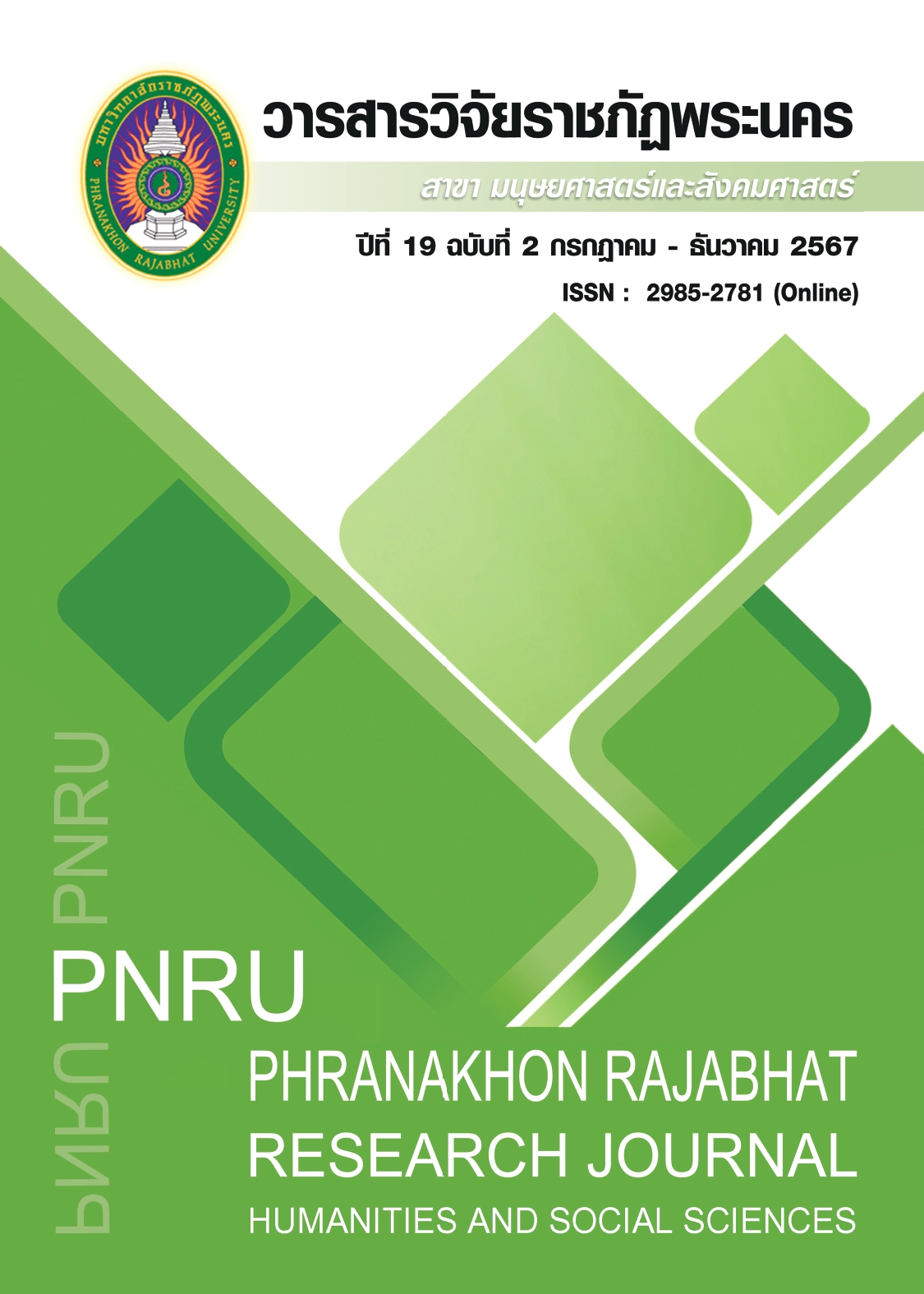INCLUSIVITY, DIVERSITY, AND JOB SATISFACTION OF EMPLOYEES IN THE AIRLINE INDUSTRY
Main Article Content
บทคัดย่อ
Diversity and inclusivity are vital for job satisfaction as they enhance employee performance and service quality. This study explores how these practices affect job satisfaction among airline industry employees, focusing on Thai Airways International. While previous research has emphasized the importance of diversity and inclusivity, there is limited data specific to the airline sector. This research fills that gap by analyzing data from 100 employees using descriptive and inferential statistics. The findings indicate that the company's commitment to diversity and anti-discrimination policies significantly boosts job satisfaction and performance, leading to increased productivity, fewer distractions, and higher motivation for skill development and career advancement. Recommendations include prioritizing diversity through targeted recruitment, comprehensive training, and regular policy reviews, as well as fostering open communication and team bonding to mitigate job insecurity and enhance camaraderie.
Article Details

อนุญาตภายใต้เงื่อนไข Creative Commons Attribution-NonCommercial-NoDerivatives 4.0 International License.
บทความที่ได้รับการตีพิมพ์เป็นลิขสิทธิ์ของมหาวิทยาลัยราชภัฏพระนคร
ข้อความที่ปรากฏในบทความแต่ละเรื่องในวารสารวิจัยราชภัฏพระนครเล่มนี้เป็นความคิดเห็นส่วนตัวของผู้เขียนแต่ละท่านไม่เกี่ยวข้องกับมหาวิทยาลัยราชภัฏพระนคร และคณาจารย์ท่านอื่นๆในมหาวิทยาลัยฯ แต่อย่างใด ความรับผิดชอบองค์ประกอบทั้งหมดของบทความแต่ละเรื่องเป็นของผู้เขียนแต่ละท่าน หากมีความผิดพลาดใดๆ ผู้เขียนแต่ละท่านจะรับผิดชอบบทความของตนเองแต่ผู้เดียว
เอกสารอ้างอิง
Adams, J. S., & Freedman, S. (1976). Equity theory revisited: Comments and annotated bibliography. Advances in experimental social psychology, 9, 43-90. https://doi.org/10.1016/S0065-2601(08)60058-1
Creswell, J. W., & Creswell, J. D. (2018). Research design: Qualitative, quantitative, and mixed methods approaches (5th ed.). SAGE Publications.
Dansereau, F., Graen, G. B., & Haga, W. J. (1975). A vertical dyad linkage approach to leadership within formal organizations. Organizational Behavior and Human Performance, 13(1), 46-78. https://doi.org/10.1016/0030-5073(75)90005-7
Downey, S. N., Van Der Werff, L., Thomas, K. M., & Plaut, V. C. (2015). The role of diversity practices and inclusion in promoting trust and employee engagement: Diversity practices and engagement. Journal of Applied Social Psychology, 45(1), 35–44. https://doi.org/10.1111/jasp.12273
Etikan, İ., Musa, S. A., & Alkassim, R. S. (2016). Comparison of convenience sampling and purposive sampling. American Journal of Theoretical and Applied Statistics, 5(1), 1. https://doi.org/10.11648/j.ajtas.20160501.11
Goniewicz, K., Khorram-Manesh, A., Hertelendy, A. J., Goniewicz, M., Naylor, K., & Burkle Jr, F. M. (2020). Current response and management decisions of the European Union to the COVID-19 outbreak: a review. Sustainability, 12(9), 3838.
Gusain, M. and Dr. Harminder Kaur Gujral, H. K. (2024). Role of employee engagement and gender diversity in creating inclusive organizational culture. International Journal of Research -GRANTHAALAYAH, 12(5), page. https://doi.org/10.29121/granthaalayah.v12.i5.2024.5617
Hadley, L. V., Naylor, G., & Hamilton, A. F. d. C. (2022). A review of theories and methods in the science of face-to-face social interaction. Nature Reviews Psychology, 1(1), 42-54. https://doi.org/10.1038/s44159-021-00008-w
Hartika, A., Fitridiani, M., & Asbari, M. (2023). The effect of job satisfaction and job loyalty on employee performance: A narrative literature review. Journal of Information Systems and Management (JISMA), 2(3), 9-15.
Kılıç, S. and Peksatıcı Yanıkoğlu, Ö. (2023). Breaking the barriers: an analysis of diversity, equity, and inclusion strategies in the global aviation industry. Tourism in Southern and Eastern Europe. https://doi.org/10.20867/tosee.07.13
Maj, J. (2023). Influence of inclusive work environment and perceived diversity on job satisfaction: evidence from Poland. Central European Business Review, 12(4), 105-122. https://doi.org/10.18267/j.cebr.334
March, K. G., Aplin-Houtz, M. J., Lawrence, U. E., Lane, E. N., & Meriac, J. (2023). Mutual benefits: delving into leader-member exchange (lmx) and pay dynamics with social exchange theory. Employee Responsibilities and Rights Journal. https://doi.org/10.1007/s10672-023-09490-1
Morfaki, C. and Morfaki, A. (2022). Managing workforce diversity and inclusion: a critical review and future directions. International Journal of Organizational Leadership, 11(4), 426-443. https://doi.org/10.33844/ijol.2022.60343
Özkan, A. H. (2022). Organizational justice perceptions and turnover intention: a meta-analytic review. Kybernetes, 52(8), 2886-2899. https://doi.org/10.1108/k-01-2022-0119
Qi, L., Liu, B., Wei, X., & Hu, Y. (2019). Impact of inclusive leadership on employee innovative behavior: perceived organizational support as a mediator. Plos One, 14(2), e0212091. https://doi.org/10.1371/journal.pone.0212091
Shore, L. M., Cleveland, J. N., & Sanchez, D. (2018). Inclusive workplaces: A review and model. Human Resource Management Review, 28(2), 176–189. https://doi.org/10.1016/j.hrmr.2017.07.003
Umrani, W. A., Siyal, S., Al Riyami, S., Memon, M. A., & Siyal, A. W. (2024). Inclusive leadership and innovative work behaviours: social exchange perspective. Current Psychology. https://doi.org/10.1007/s12144-024-06192-1


